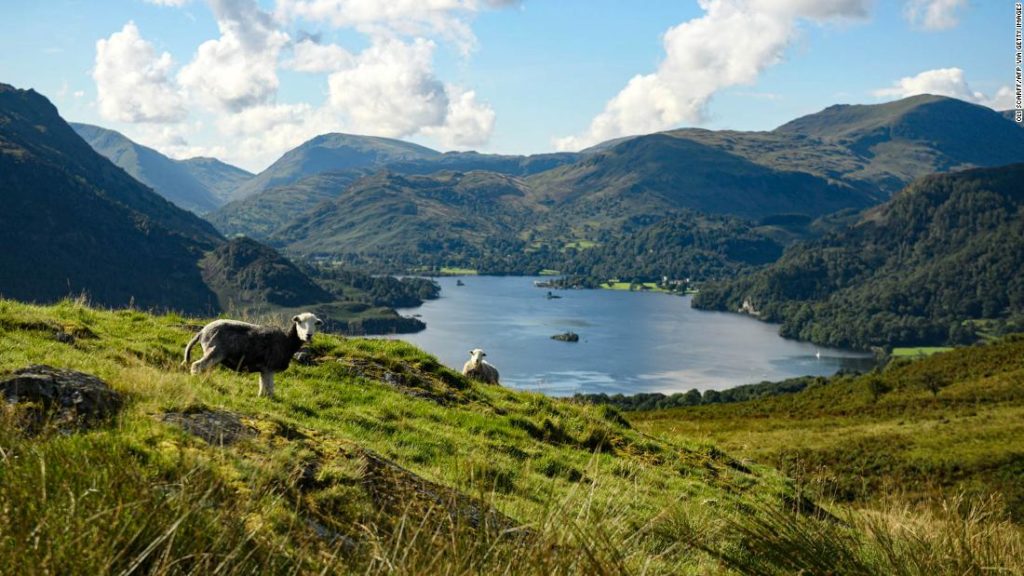
Editor’s Note — Coronavirus cases remain high across the globe. Health officials caution that travel increases your chances of getting and spreading the virus. Staying home is the best way to stem transmission. Below is information on what to know if you still plan to travel, last updated on January 7.
The basics
The United Kingdom has seen one of the highest number of deaths from Covid-19 in the world. Despite being the first country globally to start a vaccination scheme, it is still in the grip of a deadly second wave. A new variant, said to be much more infectious, has been discovered in the UK, meaning that many countries canceled air links right before Christmas 2020. Currently, it’s open to visitors from everywhere except a handful of countries in sub-Saharan Africa, plus Mauritius and the Seychelles.
However, there’s not much to do right now, since the country is in full lockdown since January 4.
What’s on offer
In London, the UK has one of the world’s greatest cities. But beyond the architectural marvels and nightlife of the capital, there is much to explore — the rugged peaks of the Scottish Highlands, distant Welsh lakes and the wide sweep of Cornish beaches, for starters, plus historic towns and cities such as Bath, Oxford and Harrogate.
Who can go
As of January 7, visitors from South Africa, Namibia, Zimbabwe, Botswana, Eswatini, Zambia, Malawi, Lesotho, Mozambique, Angola, Seychelles and Mauritius will not be admitted because a new variant of the virus. UK residents traveling from these destinations will be allowed, but must quarantine for 10 days on arrival alongside all members of their families. The measures have been put in place for an initial two weeks.
All other visitors must quarantine for 10 days on arrival, though if you are staying with UK residents, the rest of the household does not need to.
The Welsh, Scottish and Northern Irish governments operate similar schemes, although countries on their exemption lists aren’t necessarily the same as England’s.
(The Republic of Ireland has entirely separate entrance regulations, which are enforced when crossing the land border.)
What are the restrictions?
A new “test to release” scheme came into force in England on December 15, allowing travelers to take a PCR test after five days’ quarantine and then go out into the community on the receipt of a negative result (although they must wait to receive the results before leaving their lodgings). Travelers to Wales, Scotland and Northern Ireland cannot take advantage of the scheme and must isolate for 10 days unless coming from a travel corridor country.
Travelers arriving from the sub-Saharan countries listed above, plus Mauritius and Seychelles, are not eligible for Test to Release.
Travel between the four countries of the UK is also restricted. The Welsh government has prohibited travel to Northern Ireland and high-risk areas of England and Scotland. Travel between Scotland’s high alert areas and the rest of the UK is prohibited unless travelers have a reasonable reason.
What’s the Covid situation?
The situation in the UK remains poor. There have been over 77,000 deaths as of January 7, though it is believed the true number could be higher.
After an initial UK-wide lockdown in spring, for the second wave, each country has developed its own set of criteria, which are region-specific. The UK was the world’s first country to begin a vaccination program; it is hoped that this can lessen the burden on the National Health Service.
However, the announcement of a new variant of Covid-19 right before Christmas means cases in the UK are rising fast, with many hospitals already over capacity.
What can visitors expect?
On January 4, England entered its third national lockdown. All nonessential shops are closed and schools are largely shut. Those in England can only go out for essential reasons, which includes outdoor exercise or visiting a place of worship. Restaurants are open for takeaway food. You can meet one member of another household outside for exercise, and preformed ‘support bubbles’ can still meet.
When lockdown ends, visitors to England will find the country divided into four tiers. Tier 1 is the lowest. This allows for mixing indoors and outdoors of up to six people, sporting events with a capacity of 4,000 and pubs and bars able to trade as normal.
Tier 2 restrictions only allow for mixing between households outdoors. People are not allowed to meet other households in indoor settings, including pubs, which must stop serving alcohol at 10 p.m. and only do so with a “substantial meal.” Retail is open, however and sports events can take place with 2,000 people.
Tier 3 measures see pubs, restaurants and bars all closed. Mixing between households can take place only in outdoor public settings such as parks and beaches.
Tier 4, the “stay at home” tier, is right below lockdown. You must not leave your home except for essential reasons, such as shopping for food or medicine. You may exercise outside, alone, and schools remain open.
Wales is also in lockdown. The rules are largely the same as England, but you cannot mix with anyone outside your household.
Regular level 4 is also essentially a stay at home order, with nonessential shops closed.
All islands except for Skye, Bute, Arran and Gigha remain in level 3. Travel in and out of the area is banned, and restaurants are open until 6 p.m. but must not serve alcohol.
Northern Ireland entered a six-week lockdown on December 26. All nonessential shops are closed, and restaurants are open for takeaway and delivery only. Off-licenses must close at 8 p.m.
Useful links
Our recent coverage
You may also like
-
Afghanistan: Civilian casualties hit record high amid US withdrawal, UN says
-
How Taiwan is trying to defend against a cyber ‘World War III’
-
Pandemic travel news this week: Quarantine escapes and airplane disguises
-
Why would anyone trust Brexit Britain again?
-
Black fungus: A second crisis is killing survivors of India’s worst Covid wave

